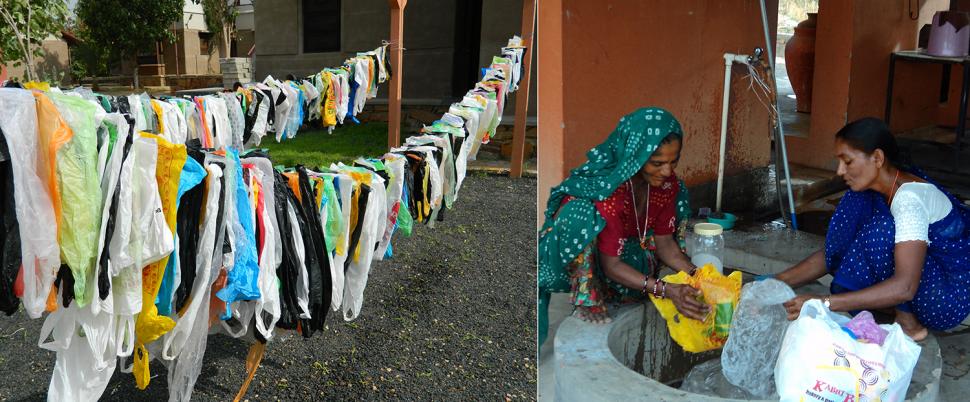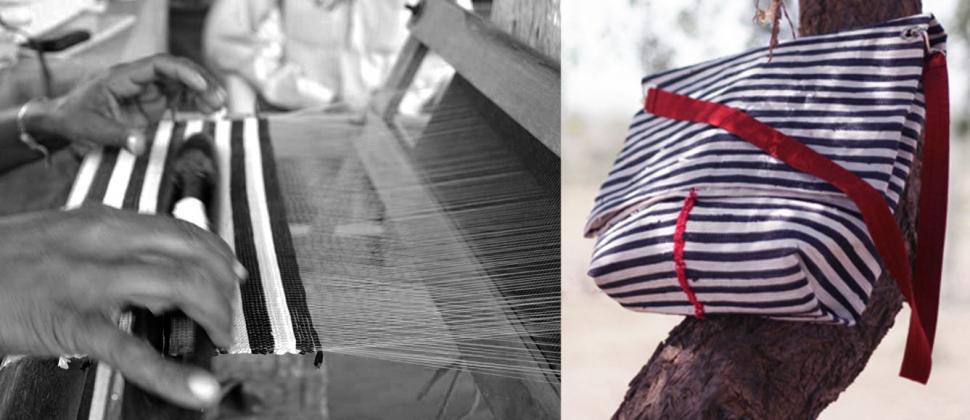Plastic in the Kachchh Environment
There is a tradition of resourcefulness all rural communities. As the local leather artisans once used the waste of Maldhari cattle hides to craft goods, now Khamir has created an intervention to make new goods from waste plastic. Plastic takes thousands of years to degrade, preventing soil from being used productively and leaching its way into groundwater.
One method of plastic waste disposal that has been common to Kachchh is burning large piles of plastic. Studies have shown that burning plastic may release carcinogenic toxins into the air. Littering is a common problem, and trash in Bhuj rarely makes it to a landfill. Recognizing the issue of waste disposal as a global problem, it is necessary to create new, lasting solutions.
Community Threads
Providing employment to plastic waste collectors, area committees, schools, and nearby industries to collect plastic waste, Khamir cleans, sorts and segregates used plastic based on its color and quality. Cleaned plastic is cut into long strips by women from villages near Kukma. The plastic strips of different colors are woven into durable textiles. Nylon is used for the warp, and plastic forms the weft, creating a thick dense material useful for mats, backpacks, or cushions. Weaving is a skill intrinsic to the Kachchh, and the recycled plastic is woven using a technology ancient to Kachchh - the pit loom.
The Recycled Plastic initiative is an example of the way craft can alter a space and generate income for marginal people. This is a skill that can be easily learnt by neo-weavers and can become a source of supplementary income to medium skilled weavers, home-based workers, disabled and senior citizens. In our age of global warming, this project has great significance. Rather than creating new materials, this intervention has found a way to re-use waste and protect our environment from the harsh toxins that modern production technologies may produce.
The Possibilities for Plastic

Treatment of plastic bags at the Khamir Campus
An intervention of Khamir, plastic weaving is now practiced by several weavers on our campus and at their homes. Khamir works actively to train weavers to use plastic, and has led the way in the trade and marketing of this material. Additionally, Khamir is working to overturn local stigmas about waste reuse by introducing plastic woven items into the local community.

Handwoven Plastic Products
By crafting recycle plastic backpacks for school children, and creating effective and attractive products, Khamir is trying to make a statement about the problem of waste.